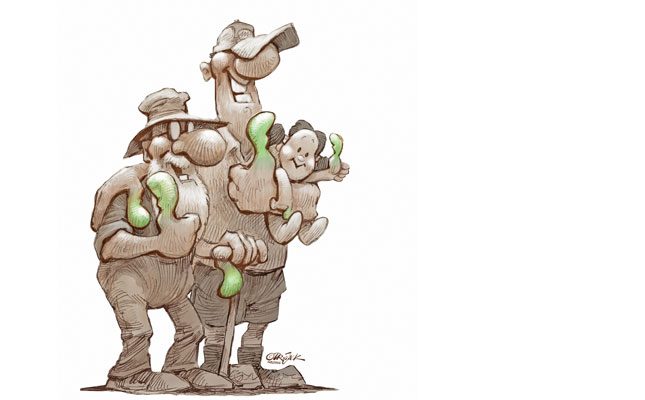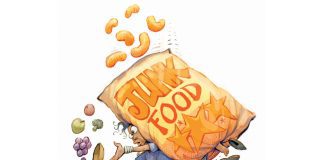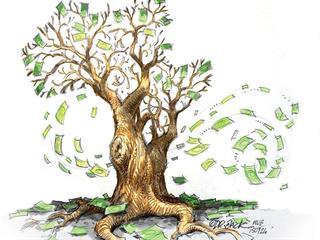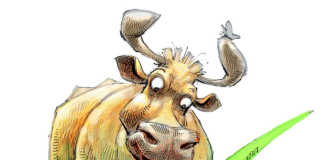
The prolonged financial support of conventional agricultural practices, knowing all too well the detrimental effects these have, can be compared to reckless lending, if not de jure, then definitely de facto.
It’s therefore important to celebrate the visionary leadership of bankers who acknowledge the need and urgency to support conservation and regenerative agriculture.
It was not so long ago, in 1993 actually, that I was bluntly told by a senior manager of the financial institution where I was employed that the only form of sustainable development was sustainable financial and economic development.
Today, we can both laugh and lament at such a one-sided statement, because the truth is that no environmental sustainability exists without financial sustainability, and no financial sustainability without environmental sustainability.
Unfortunately, however, dangerous and even toxic reminders of such a narrow view are still prevalent today, some more subtle than others. There are those who relentlessly believe that the economic theorem of ceteris paribus, meaning to keep all else constant, still holds.
In the context of economic growth, this means that growth can be pursued by focusing on the growth of capital and labour as production factors while holding all other factors constant.
This does not imply that natural capital is ignored; on the contrary, natural capital is used in the production process. It is just assumed that the consumption thereof does not bring about any qualitative and/or quantitative change in the natural capital base, resulting in no impact on the economy and its development trajectory.
This is folly, flawed in every imaginable sense, and it is phenomenally destructive. Yet the ceteris paribus theorem is still the driving force behind an economic (‘brown’) cult, where progress is measured only in financial terms by considering the internal rate of returns and net present values of a project while paying lip service, using smoke and mirrors, to environmental, social and corporate governance targets.
On the other end of the spectrum, we find the ‘green’ cult. So outrageous were their assertions a mere decade ago that few paid any attention to them. I wish I had. Based on various fabrications of reality, they became the master of spin.
Their spin doctors were able to infiltrate almost every segment of society, including the person responsible for making the household purchases. When stripped to the core, their narrative implies that people are parasites of nature rather than part of nature with a very important stewardship responsibility.
Product labelling, and that at a premium, has become a barometer of the degree of environmental correctness of certain products. By not buying the ‘right’ product at its inflated margin, the consumer is made to feel ‘environmental guilt’.
Consequently, whether deliberate or not, environmental consciousness has become franchised at a corporate level through an increasingly concentrated and narrow supply chain.
So sustainable development has, once again, descended into the abyss of corporate and multinational wealth accumulation under the guise of environmental prudence.
The franchising of what is to be considered green has a disturbing undercurrent, namely the notion that it is only the elite, those able to afford the product with the right label, who care for and look after our glorious natural capital estate. Sadly, we all know that the green spin that fills corporate coffers is not sustainable development.
The cost of farming with nature is lower than its chemical and/or industrial counterparts. Products produced sustainably should therefore be more affordable. Thus, there is a strange, even bizarre, confluence of the anthropocentric and ecocentric world views amongst those in power who are serving their own interests and doing so on an environmental ticket at the expense of the economically vulnerable and disenfranchised.
For those with a deep-seated love and sense of care for the environment, who know how
vital the ecosystem goods and services are that nature, at no cost, so graciously bestows on all of us, the task at hand is massive. In years past, we only had the brown cult to deal with, but now we have its boisterous twin brother, the green cult, as well.
What can we do? Can we do anything? I suppose it’s easy to simply stop and become depressed. The climate is changing, input prices are spiralling out of control, the world is exceedingly fragmented and polarised, and the markets are in the hands of their corporate masters and political allies. Are there no solutions?
The family farmer as custodian of the land
At this point, I would like to salute the family farmer, the agent who can usher in the fastest and greatest change to truly sustainable development. Collectively, family farmers, whether commercial, communal, small-scale or large, are the world’s greatest group of custodians of the land.
It is the family farmer who cares for the environment, animal welfare, society, labour, the family legacy and the future of his or her region and country who is the most powerful catalyst of constructive and positive change.
Often, these farmers pride themselves on their agrarian lineage dating back centuries in some cases. They look both forward and back. Does this not provide us with an authentic definition of sustainability?
These farmers have the ability to look through the windscreen while keeping an eye on the
rear-view mirror with the knowledge that they can leave the farm better off ecologically, socially, institutionally and financially. This means an efficient farm where input costs have been brought under control and that does no harm to society or the environment. On the contrary, it is a farm that uses the age-old recipe of sun, water, time and wisdom to produce a net gain for all involved.
Forward-thinking, visionary family farmers are also among the most innovative people on the planet. They energetically seek solutions, experimenting and trying out new, better, more efficient, practical and wholesome remedies.
They are closet researchers and at their core are naturalists with amazing skills of observation. This is because they farm close to nature and treat it properly, knowing that they depend on the way in which nature and their livestock treat them in return. By and large, they are people with a strong value system, who believe in what is right and wrong for humans, animals and plants.
While I can continue to sing their praises, we should also recognise the fact that in most cases much more can be done to reduce the use of external inputs and the generation of waste, and to transform the operation of the farm into a more circular economic and ecological system.
A typical breeding ground for such groundbreaking work is farmer study groups and innovation platforms that can facilitate co-learning and provide accountability.
In addition, the transition to a sustainable farming future must be accelerated through access to, and deployment of, suitable financial instruments.
While we should celebrate visionary leadership and the progress that has been made with respect to land stewardship, there is still a lot of room for improvement on all fronts. We cannot be complacent; we have to push the frontiers of both knowledge and practice to accelerate on-farm sustainability, and this will require bravery and bold action.
Now more than ever, the network of family farmers, the financial sector and conservation bodies need to collaborate and spearhead sustainability at farm level.
Each role player has a crucial part to perform in regenerating the domain under its management. Equally importantly, however, collaborative action is required to advance a stewardship- and regenerative-oriented mindset in the media, public opinion and consumer behaviour.
Such collaboration will have to be forward-thinking rather than reactionary. Reactionary behaviour is akin to playing catch-up, a rearguard action, while forward-thinking is trendsetting, or charting the path of a yet-to-be-built future.
Forward-thinking is also, by definition, optimistic, energetic and enthusiastic, and loaded with innovation, yet with a good balance of responsibility to co-create a resilient future.
These positive traits and their constructive outcomes will be in vain without effective communication.
Industry, conservation, finance and the family farmer need to stand together. This is the key to regenerating the soil on which we, and our children, depend, so that we can leave a food-secure, financially stable and ecologically intact legacy.
The views expressed in our weekly opinion piece do not necessarily reflect those of Farmer’s Weekly.
This is an edited excerpt of the keynote address given by Prof James Blignaut at the MPO-Nedbank Stewardship Awards event on 30 November 2022.
Blignaut is a member of the scientific panel of the World Farmers’ Organisation, professor extraordinaire attached to the School of Public Leadership of Stellenbosch University, and honorary research associate of the South African Environmental Observation Network. He is also director of ASSET Research and manager of Restore Africa Funds. Email him at [email protected].













